Over the last few months I have been updating The Key to IELTS Writing Task 2. The Format is now reflowable so that it work better on any device. There are also more exercises and more interactive content. So far, I have completed lessons 1 to 16 and the images below show how the book looks now and some of the new exercises.
Extract from Lesson 8.3:
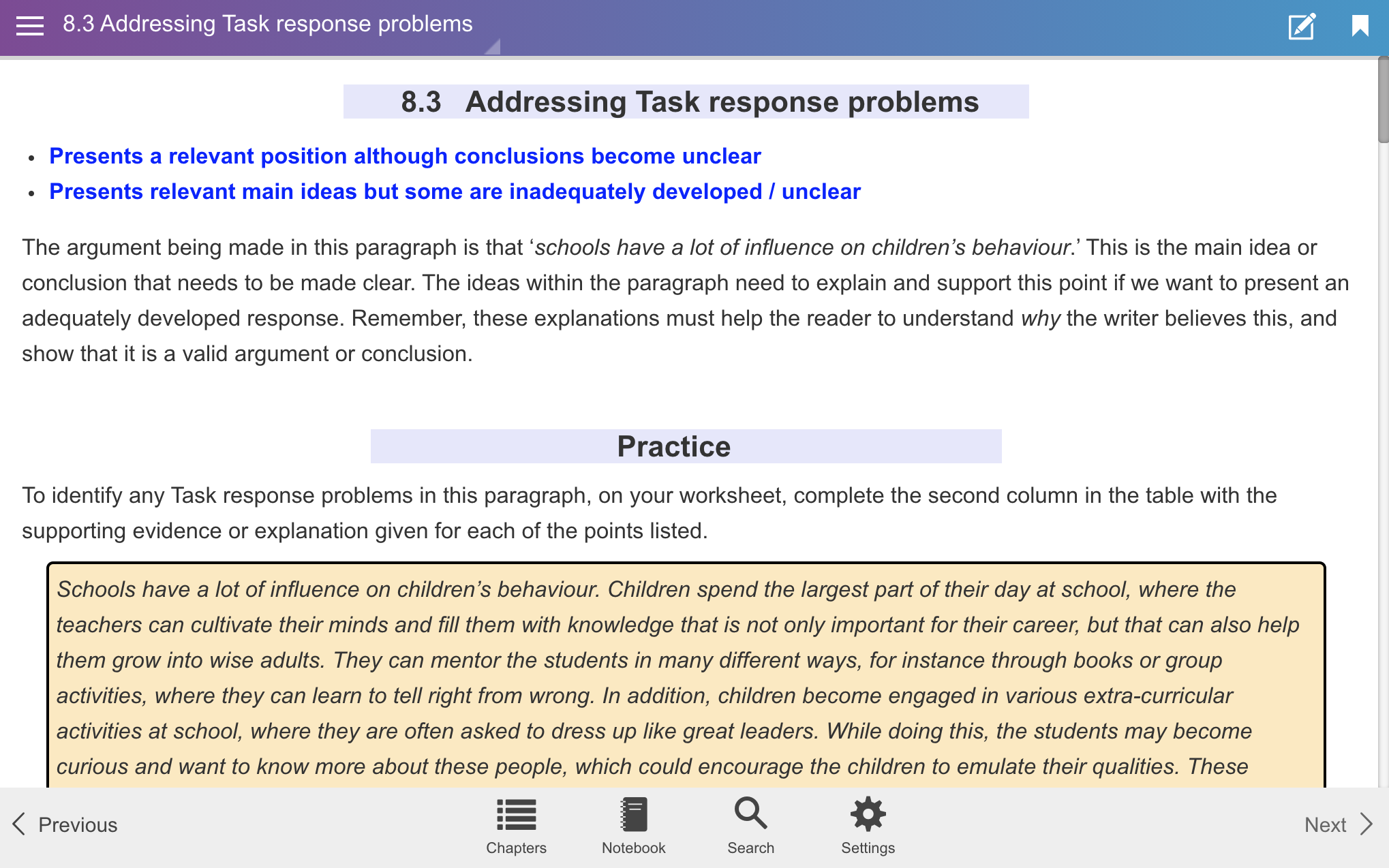
Examples of listening exercises:
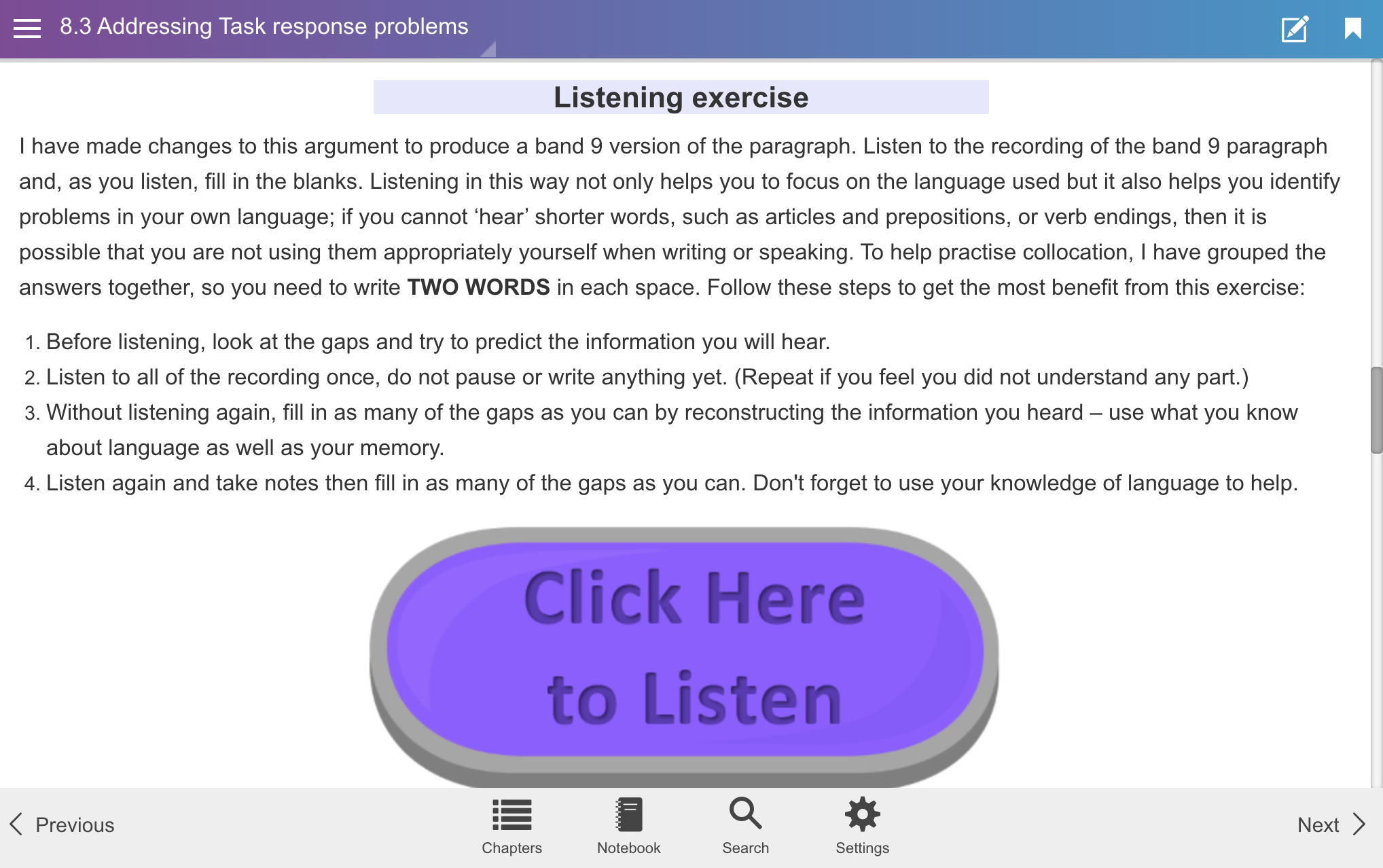
Other exercises:
Finishing a paragraph:
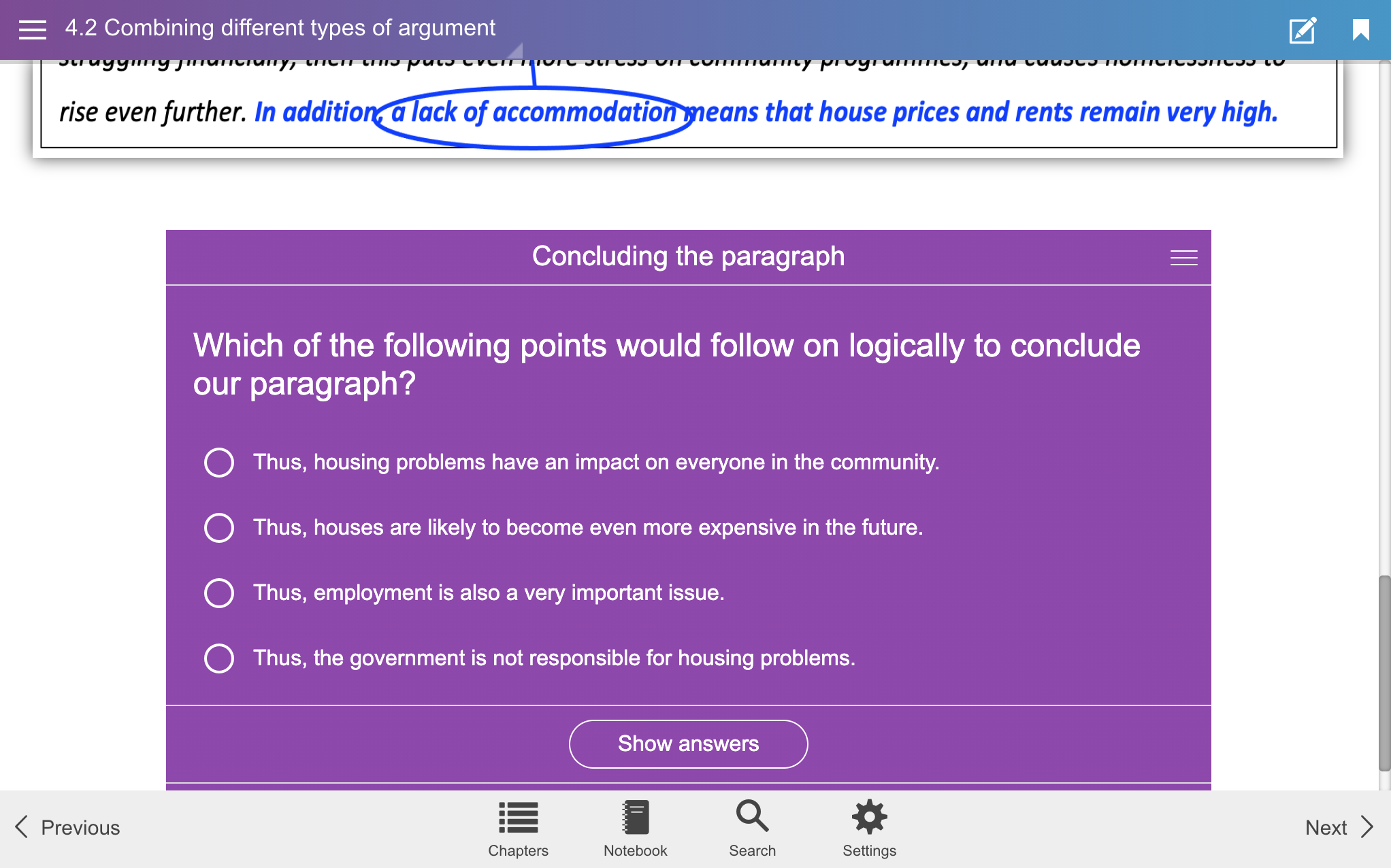
Thesis statements:
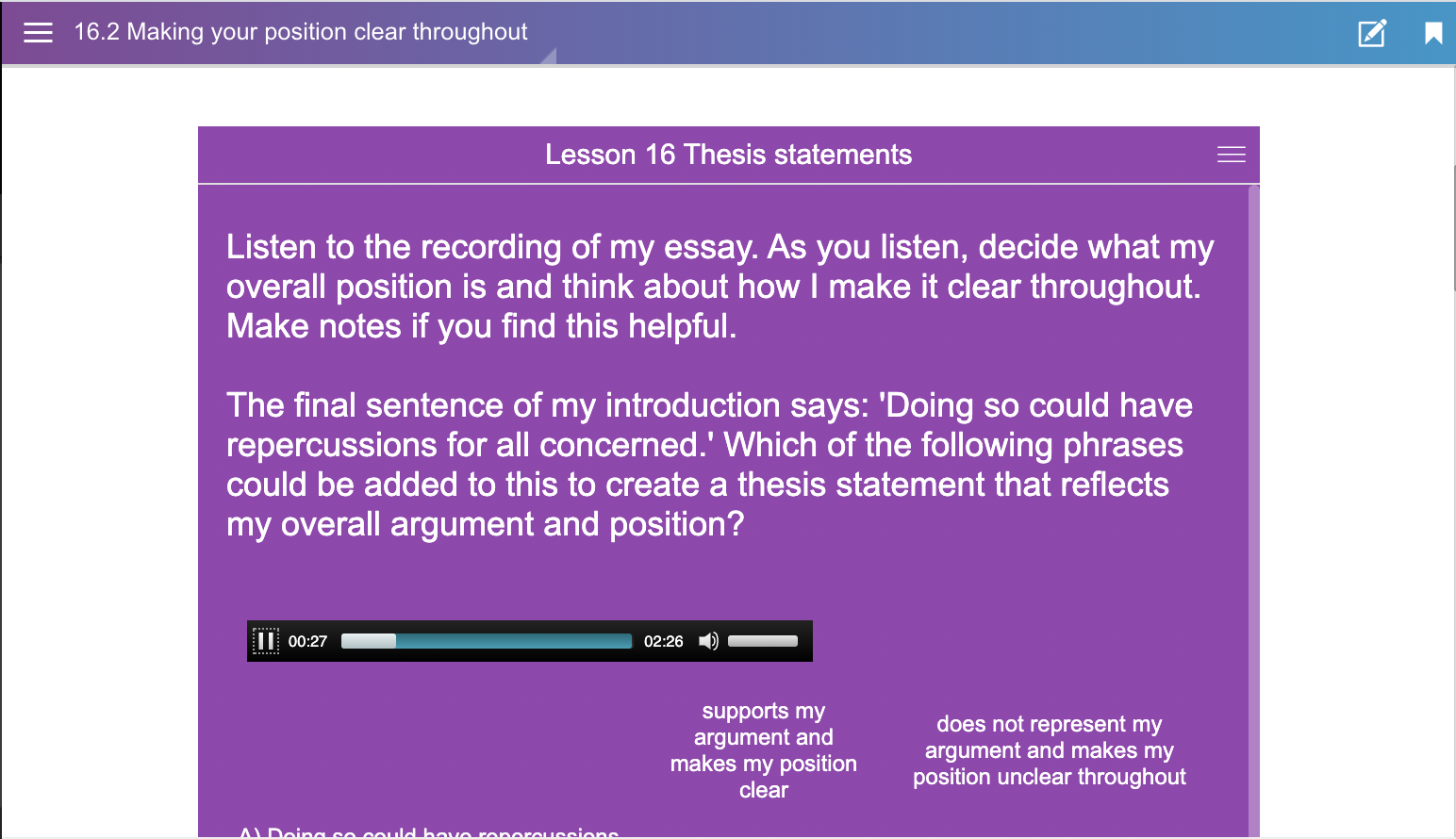
Building vocabulary:

There are also exercises based on grammar and making your position clear throughout, and writing a counterargument.
In lessons 1 – 9, you will learn all you need to know about writing an IELTS Task 2 answer. In lessons 10 to 20, through the 16 model answers, you will learn how to apply all of these ideas and build your own thinking, planning and writing skills so that you can confidently answer any writing task 2 question in the test. Find out more here.


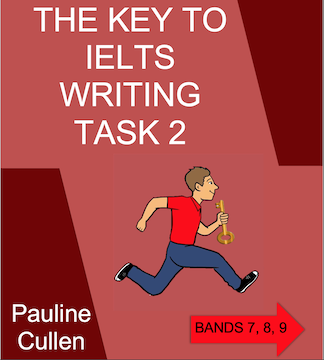

Hi Pauline, thank you for your great work and it helps me a lot. I am really looking forward to the improvement of the book but I find my book doesn’t change it all. I can’t find any changes you’ve mentioned above. Should I purchase it again?
Hi, If you email me I can send you the link to the new book – culleneducation@hotmail.com
Dear Pauline,
Can the following phrases be used interchangeably?
me included = myself included (ex. We all went, me included. = We all went, myself included.)
including me = including myself (ex. We all went, including me. = We all went, including myself.)
Also, in the IELTS Vocabulary book (page 146), “included” and “excluded” are indicated as adjectives. While “included” is present in dictionaries as an adjective as well it is not the case for “excluded”. “Excluded” is not presented as an adjective.
I am not sure what you are asking here. I can certainly find ways to use ‘exclude’ as an adjective. For example: ‘When a group chooses to speak their own native language around people who do not speak it, this can make others feel excluded.’ I don’t necessarily expect you to be able to find every adjective form of a verb in a dictionary – generally, it is the ‘ed’ form, though sometimes it can be the ing form too (see ‘I am bored’ and ‘I am boring’).
Where have you seen this being used? I would only expect to hear this rather than reading it – this is spoken language, which does not obey the normal rules of grammar